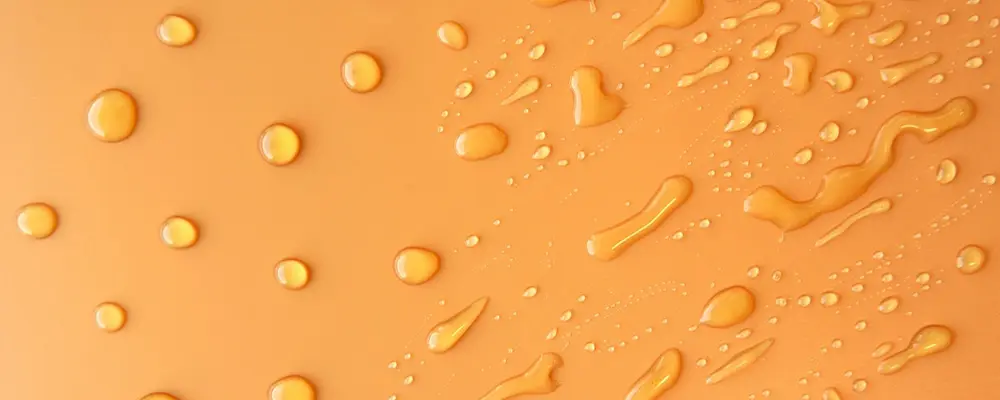Overview of Eczema:
Eczema, also known as Atopic Dermatitis, is a skin condition in which the skin becomes inflamed, red, and scaly. It is a painful chronic condition, and eczema flare-ups meaning that it lasts longer than usual and is often associated with asthma or hay fever. Eczema is more typical in children but in some cases, it persists into adulthood as well. There is no exact cure for Eczema but potential Eczema treatments can help minimize the symptoms.
This blog will cover queries such as whether is eczema an autoimmune disease, what are its types, and what causes eczema flare-ups.
Prevalence of Eczema:
Around 10.1% of the US population has some form of eczema. It is more prevalent in females (11.1%) than males (9.1%). Likewise, eczema is comparatively more common in kids (10.7%) than in men.
Areas Commonly Affected By Eczema
Eczema occurs most commonly behind the knees and inside the elbows. It may also appear on the neck, wrist, or ankles. The skin is red, scaly, and crusty with pain.
What Is Eczema?
Eczema is a chronic skin condition that presents as red, scaly, itchy skin. It is an extremely distressing condition that not only affects physical health but has some serious negative impact on mental health.
What Causes Eczema Flare-Ups?
Eczema is connected to a gene variation that disrupts the skin’s defensive layer. This provides allergens, bacteria, and other microorganisms a route to enter the skin and affect it. Factors like environmental triggers, irritants, weather changes, and allergens are primarily accountable for causing Eczema.
What Are The Symptoms Of Eczema?
The symptoms vary from person to person. A lot of it depends on one’s ability to deal with diseases. The symptoms include:
- Itchy skin,
- Dry, scaly patches,
- Small bumps,
- Swollen, sensitive skin
- Crusting skin,
- Bumps on the skin, and
- Red rashes
Types Of Eczema:
Eczema has multiple types, each with a different presentation. These include:
- Atopic dermatitis,
- Contact dermatitis,
- Dyshidrotic eczema,
- Hand eczema,
- Neurodermatitis,
- Status eczema,
- Papular eczema, and
- Nummular dermatitis

Scalp Eczema:
Seborrheic dermatitis is the most prevalent type of scalp eczema. It causes dry, inflamed, itchy scalp. One of its symptoms is oozing lesion which is painful and distressing at the same time. Maintaining your hygiene and following your physician’s prescription can be of help in managing the condition.
Hand Eczema:
Hand eczema as the name suggests affects the skin of the hands. The symptoms are dry, itchy, red skin including fingers. In severe cases, it may lead to soreness, cracks, and bleeding. This can impact day-to-day activities such as holding a pen, doing kitchen chores, etc. there are multiple causes of eczema, like direct contact with detergents, dust, and regular use of cleaning agents.
Management:
Hand eczema can be managed by maintaining your hygiene and avoiding the triggers. Regularly moisturizing your hands can be of great help too. In addition to that, it is always best to consult your physician for the right treatment options.
Foot Eczema or Dyshidriosis:
Foot eczema can be really painful as it presents as blisters on the sole of the foot. It interrupts daily life activities when it is triggered. The skin becomes cracked, red, and painful with nail thickening and itching.
Management:
Foot eczema requires extensive treatment. Steroid ointments are most commonly prescribed to alleviate the severity of symptoms. Antihistamines relieve the itching from the lesions. Dome quick home remedies include putting a warm compress on the blisters for a few minutes, it helps in soothing the affected area.
In case these treatments do not work for you, try:
- Light therapy
- Botulinum toxin
- Medicines that help to slow down the immune system
- Draining the affected lesion
Eczema and Food Allergies:
People with eczema frequently experience allergies like food allergies. Food sensitivity is more normal in babies with dermatitis and a family history of sensitivity. Around 30% of infants in these gatherings foster food sensitivity as compared to just 10% in everybody. There is some proof that handling skin inflammation well during early stages might lessen the opportunity of a baby creating food sensitivity.
However, it is important to note that food allergies do not cause eczema, they might just trigger eczema flare-ups. Some of the foods that might cause eczema are:
- Cow’s milk,
- Eggs,
- Soy products,
- Gluten,
- Nuts,
- Fish, and
- Shellfish
Foods with preservatives and artificial ingredients are also responsible for exacerbating eczema flare-ups. Such as trans fat, margarine, processed food, and fat food.
Foods That Help Alleviate Eczema Flare-ups:
Anti-inflammatory foods are the best source of alleviating eczema flare-ups. These include:
- Fatty fish
- Foods with quercetin
- Foods containing probiotics
Eczema And Its Link With Skin Cancer:
According to a study, atopic dermatitis often increases the risk of skin cancer, mainly basal cell carcinoma and squamous cell carcinoma. However, there is still a need for extensive research to present the final verdict on the association between eczema and skin cancer.
Eczema and Asthma:
Eczema and asthma both are inflammatory conditions that are usually present side by side. Not everyone with eczema has asthma or vice versa. As previously discussed, having a strong family history of allergies can certainly trigger asthma and eczema flare-ups.
Eczema and Immune System:
Eczema necessarily does not mean that your immune system is weak. It just suggests that the immune system is highly sensitive, meaning that it gets affected by even the minute things that are not a real hazard to it.
It is important to note that eczema flare-ups can affect people with healthy immune systems too.
Eczema and Other Skin Conditions: How To Differentiate?
Eczema does not cause other conditions but it might look like other skin conditions. Psoriasis, hives, scabies, and ringworm are some of the skin conditions that resemble eczema. The difference lies in the site of the appearance of lesions.
Eczema and Stress:
Eczema is an inflammatory skin condition that can be triggered by stress. When the body is under stress, it tends to release certain chemicals and stress hormones like cortisol and adrenaline. These hormones reduce the efficiency of the immune system and weaken the skin barrier.
In spite of the fact that it’s difficult to get rid of stress altogether, diminishing stressors in your day-to-day existence might assist you with better dealing with your dermatitis.
Trying these unwinding methods may reduce the stress and ultimately makes your skin better:
- Take out a couple of moments every day to shut your eyes and inhale profoundly or ponder.
- Read a decent book or watch one of your favorite films.
- Write in a diary or try a grown-up mandala book.
- Light a few candles and wash up.
- Take a stroll outside or hang out in your neighborhood park.
- Pay attention to relieving music or tune in to a new digital recording.
Photosensitive Eczema:
As the name suggests, this type of eczema is caused by excessive exposure to the sun. It can happen to all age groups and skin types due to an irregular reaction to the components of the spectrum of light. The lesions appear on the visible parts of the skin like hands, chest, arms, and side of the neck.
Management:
Its management involves avoiding sun exposure by applying a strong SPF sunscreen to protect the skin from the hazardous rays of the sun. In addition to that, plan your activities during the late afternoon hours when the sun rays are not that efficacious.
Wearing fully concealing clothes can also help in minimizing the heat effects.
Dermatitis in Children – The Do’s And Don’ts:
Atopic Dermatitis can be exceptionally difficult and uncomfortable for children. Parents must have a sound comprehension of the condition to flawlessly handle it. There are sure tips that can help the parents including:
- Free and delicate apparel that might assist with reducing tingling caused by dermatitis,
- Keep your kid’s fingernails short to abstain from scratching,
- Children should try not to become overheated as it can prompt flareups,
- To add dampness to the skin, children should be adequately hydrated,
- Distinguish the triggers and eliminate them from your family to stay away from flareups,
- Children should wash up with neutral water, and
- Stress is a serious area of strength for dermatitis: Assist your kid with ways of dealing with the pressure. This might incorporate various activities, profound breathing, or conversing with a specialist.
At Home Remedies For Managing Eczema:

There are various options available to manage eczema flareups at home, these include:
- Moisturize your skin
- Use an anti-itch cream to soothe the itching
- Try avoiding scratching the lesion
- Take warm baths regularly
- Increase your water intake as it helps to moisten the skin and keeps dryness at bay
- Eat foods rich in anti-inflammatory properties
- Choose soaps that are mild and free of irritants
- Maintain your personal hygiene
- Work on improving your mental health
- Wear clothes that are soft and comfortable
- The use of a humidifier can help to add moisture to the room and allows the skin to relax
How Does Eczema Impact the Quality of Life?
Eczema is one of those conditions that can severely impact the quality of life of an individual. It not only makes the day-to-day task difficult to carry out but also deeply affects one’s mental health. It impacts the sleep cycle, which interferes with normal bodily processes. And also has a huge impact on your ability to interact with others, and your social life is then limited.
The appearance of skin makes one question themselves and their abilities and this severely impacts their self-esteem. People with eczema can have self-portrait issues. They frequently wind up worrying about their self-image, what they look like, and so forth. This makes them aware of themselves and they are lost in their viewpoints. This can also influence their own proficient life.
What Treatment Options Do We Have?
Dermatitis flare-ups are one of those conditions that can be handled but not fixed. Certain medications endorsed by the doctor can assist with alleviating the symptoms, particularly the tingling brought about by skin inflammation.

Drugs:
- Creams: corticosteroid creams or ointments are of help in gentle cases.
- Drugs: this might incorporate anti-microbial medications to ease the bacterial disease in the event that you have wounds or breaks to treat the contamination.
- Oral medications: oral corticosteroids might be of help assuming you have extreme symptoms.
Treatments:
- Wet treatment: incorporates wrapping the body with skin medications or wet swathes to mitigate tingling because of dermatitis and the redness of the skin.
- Light treatment: this best suits individuals who are not benefited from traditional treatment choices. It incorporates exposure to regular daylight and here and there UVA and UVB beams either alone or with some drug.
- Counseling: conversing with a specialist might help
- Exercise and contemplation to ease pressure is another extremely fitting choice
Outlook:
Obviously, Eczema is a devastating condition that seriously affects one’s personality. It is critical to deal with your emotional wellness since it is a similarly significant part of one’s general well-being. Atopic Dermatitis can negatively affect emotional well-being as it can prompt mental self-image concerns, and all of this can immensely shatter one’s self-esteem.
However much the field of medicine is advancing, there is still far to go, to find a potential treatment for Eczema. There is multiple Clinical Research in Michigan evaluating novel potential therapies to treat this condition.




